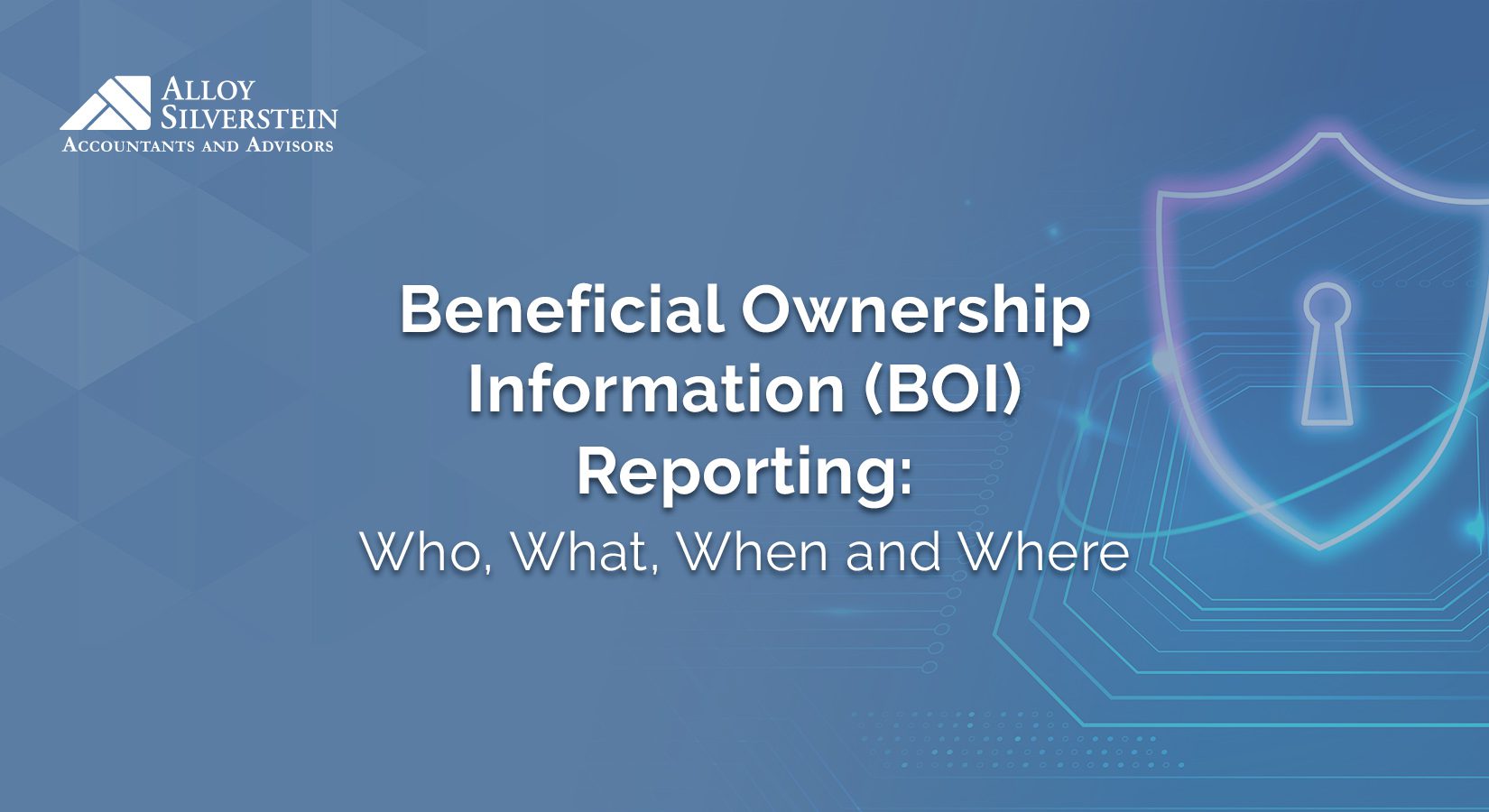
Announced earlier in 2023, the U.S. Treasury’s Financial Crimes Enforcement Network (FinCEN) is enforcing compliance with The Corporate Transparency Act (CTA) by requiring business entity owners to file Beneficial Ownership Information (BOI) reports beginning January 2024. For more detailed background on FinCEN, the CTA, and the required reporting requirement, visit Alloy Silverstein’s previous blog post update. For the basic who, what, when, and where that business owners need to know for 2024, continue reading for the latest updates.
First let’s talk dates. If your company existed and was operating prior to January 1, 2024, you have until January 1, 2025 to file your initial BOI report.
If you open a new entity on or after January 1, 2024, you will have 90 days to file the initial BOI report with FinCEN during 2024. (Note: This was an amendment by FinCEN that was finalized in November 2023, as the initial rules only provided a 30-day window for new businesses.)
New companies created on or after January 1, 2025 will have 30 days to file the initial BOI report.
In addition, reporting companies that have changes to previously reported information or discover inaccuracies in previously filed reports must file an updated report within 30 days.

UPDATE: On December 3, 2024, a nationwide injunction halted enforcement for BOI reporting and on December 23, 2024 the reporting requirements were reinstated. FinCEN is granting extra time for businesses to comply with a new January 13, 2025 filing deadline. Click here for more details.

So, who is a beneficial owner? Any individual who, directly or indirectly, either:
An individual has substantial control of a reporting company if they direct, determine or exercise substantial influence over important decisions of the reporting company. This includes any senior officers of the reporting company, regardless of formal title or whether they have any ownership interest in the reporting company. The detailed CTA regulations define the terms “substantial control” and “ownership interest” further.
It is anticipated that 32.6 million businesses will be required to comply with this reporting requirement. Entities organized both in the U.S. and outside the U.S. may be subject to the CTA’s reporting requirements. Domestic companies required to report include corporations, limited liability companies (LLCs) or any similar entity created by the filing of a document with a secretary of state or any similar office under the law of a state or Indian tribe.
Domestic entities that are not created by the filing of a document with a secretary of state or similar office are not required to report under the CTA.
Foreign companies required to report under the CTA include corporations, LLCs or any similar entity that is formed under the law of a foreign country and registered to do business in any state or tribal jurisdiction by filing a document with a secretary of state or any similar office.
There are 23 categories of exemptions. Included in the exemptions list are publicly traded companies, banks and credit unions, securities brokers/dealers, some public accounting firms, tax-exempt entities, and certain inactive entities, among others. Please note these are not blanket exemptions and many of these entities are already heavily regulated by the government and thus already disclose their BOI to a government authority.
In addition, certain “large operating entities” are exempt from filing. To qualify for this exemption, the company must:
Companies must report the following information: full name of the reporting company, any trade name or doing business as (DBA) name, business address, state or Tribal jurisdiction of formation, and an IRS taxpayer identification number (TIN).
Additionally, information on the beneficial owners of the entity and for newly created entities, the company applicants of the entity is required. This information includes name, birthdate, address, and driver’s license or passport) and an image of such document.
Penalties for willfully not complying with the BOI reporting requirement can result in criminal and civil penalties of $500 per day and up to $10,000 with up to two years of jail time.
To create a FinCEN ID, file a reporting using the BOI E-Filing system, or access instructions and FAQs, visit the https://www.fincen.gov/boi website.
As the CTA is not part of the tax code, the assessment and application of many of the requirements set forth in the regulations, including but not limited to the determination of beneficial ownership interest, may necessitate the need for legal guidance and direction. As such, since we are not attorneys, our firm is not able to provide you with any legal determination as to whether an exemption applies to the nature of your entity or whether legal relationships constitute beneficial ownership. For additional information regarding the beneficial ownership reporting requirements under the CTA, refer to FinCEN’s Frequently Asked Questions document at https://www.fincen.gov/boi-faqs.
Empowering business owners and individuals in South Jersey and Philadelphia to feel confident through proactive accounting and advisory solutions.